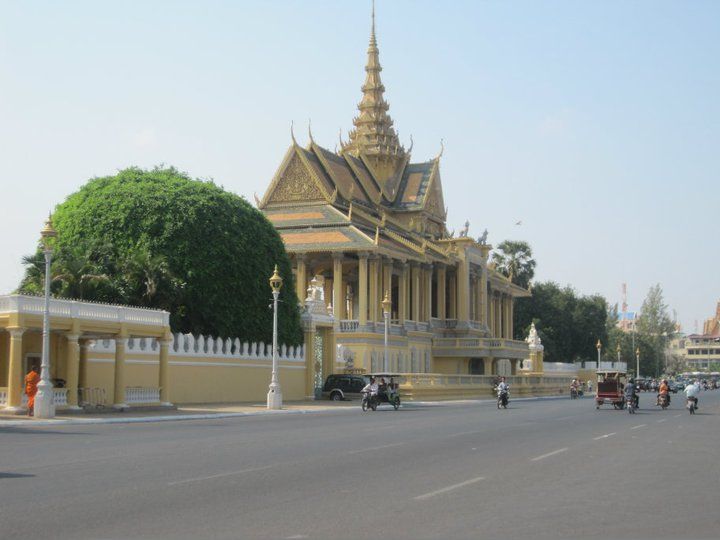Cambodia incrementally is advancing its capital markets, which if continued should help generate economic growth in one of Southeast Asia’s smallest, yet fast growing, economies. The Cambodia Securities Exchange (CSX), which is a joint venture between the Government of Cambodia and the Korea Exchange, opened in 2011 and aims to become the primary conduit for financing in Cambodia, according to the CSX.
- As of mid-June, the CSX was developing a mobile trading platform for local securities firms and their clients, according to The Phnom Penh Post. This should lead to increased trading—thus improving market liquidity—because it will enable investors to more easily execute trades using computers and smartphones.
- As of mid-June, Phnom Penh was preparing legislation to establish a corporate bond market that will allow companies to issue debt, according to The Phnom Penh Post. The bonds probably will be issued on the CSX and denominated in Cambodian Riel (KHR).
- On 8 June, the Sihanoukville Autonomous Port (PAS), Cambodia’s only deep-sea port, began trading on the CSX at a price of KHR 5,360, or about USD 1.23,[1] according to The Cambodia Daily. It has since declined 5.6%, to KHR 5,060.
Phnom Penh’s capital markets are underdeveloped, inhibiting local businesses’ opportunity to raise the capital needed to finance their operations or expansion. A company’s ability to raise capital also impacts the broader economy, to include higher productivity growth, greater employment opportunities, and improved economic stability, according to an International Monetary Fund (IMF) working paper and the Global Markets Institute at Goldman Sachs.
- As of August 2016, domestic financing at competitive rates was difficult to obtain in Cambodia, and most loans were secured by real property mortgages or deposits of cash or other liquid assets, according to export.gov.
- Only five companies trade on the CSX, which implies an initial public offering (IPO) rate of less than one per year and indicates the exchange is not a significant source of capital raising for local businesses. As of 30 June, the CSX had a market capitalization of KHR 1.17 trillion, or approximately USD 286.65 million, representing a market capitalization to Gross Domestic Product (GDP) ratio of 1.36%, based on the IMF’s Cambodia GDP forecast for 2017.
- In 2015, the Asia Development Bank identified limited financing for private sector led-growth as a key constraint on the development of essential investments and services in Cambodia. From 2000-2015, Cambodia consistently had had one of the lowest rates in Southeast Asia for gross capital formation, according to data from The World Bank, which measures the increase in investment less disposals.
[wpdatachart id=29]
Phnom Penh has made significant progress in developing its capital markets, and there remain opportunities for further advancement. At the same time, continued growth in the Cambodian economy probably will catalyze more robust capital markets, as companies attempt to benefit from the country’s economic gains.
- Continuous efforts to educate businesses on the benefits of a public listing should spur new listings on the CSX, which would allow investors to allocate capital more efficiently and would bring greater transparency to these companies. As of mid-2017, there are no indications any company soon will be offering an IPO on the CSX.
- Encouraging all companies, including those that are privately owned, to build stronger corporate governance and maintain more rigorous accounting standards could reduce the benefits of private ownership, and thus make an IPO more compelling. Moreover, stronger governance and accounting standards probably would entice greater investment and ease their ability to raise debt, even if these companies were to remain private.
[wpdatatable id=127]
*Phnom Penh Water Supply Authority (PPWSA), Grand Twins International (GTI), Phnom Penh Autonomous Port (PPAP), Phnom Penh SEZ (PPSP), and Sihanoukville Autonomous Port (PAS).
[wpdatachart id=30]
[1] This implies a conversion rate of KHR 4,090 to USD 1, which we apply to further conversions.
Disclaimer: The preceding information and analysis is provided for informational purposes only and is not intended to be used as the basis for an investment decision. We do not warrant the accuracy, completeness, or timeliness of the information or analysis, to include the accuracy of underlying assumptions, valuation approaches, or the achievement of any particular results. The inclusion of links to other websites does not indicate a recommendation of any particular company or service, and we are not responsible for the content of those websites. As of 3 July 2017, we do not hold any positions in the Cambodia Securities Exchange Index, Phnom Penh Water Supply Authority, Grand Twins International, Phnom Penh Autonomous Port, Phnom Penh SEZ, or Sihanoukville Autonomous Port.


